Basic Arithmetic Easy Math Worksheets for Ages 4-7
6 filtered results
-
From - To
Discover fun and engaging "Basic Arithmetic Easy Math Worksheets for Ages 4-7" at Kids Academy! Perfect for young learners, our worksheets encompass fundamental arithmetic skills, including addition, subtraction, counting, and number recognition. These printable sheets are designed to enhance your child’s mathematical foundation through enjoyable activities and vivid illustrations. Ideal for both classroom and home use, they ensure interactive learning experiences that promote confidence and a love for numbers. Empower your child with the essential math skills needed for future academic success. Download and explore the magic of math today!
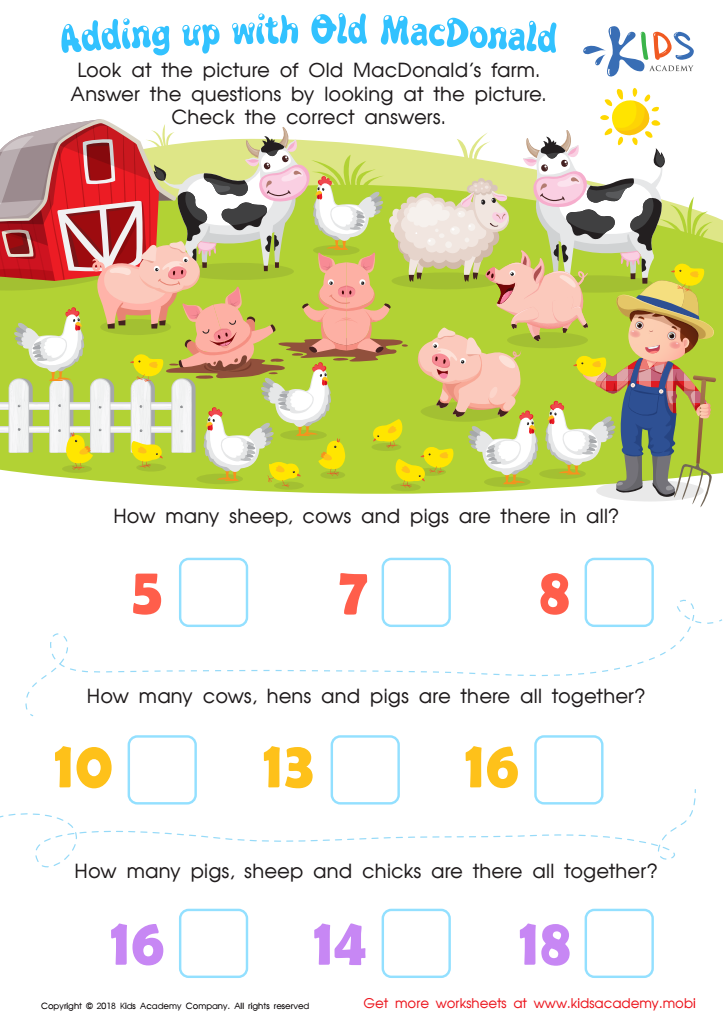

Adding Up with Old MacDonald Worksheet
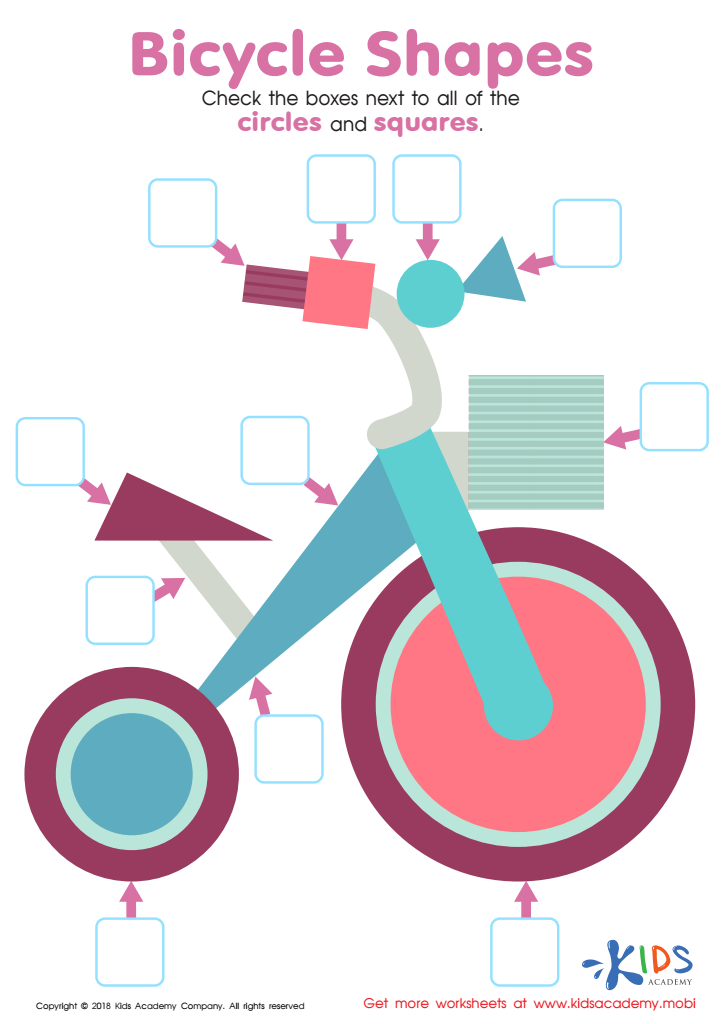

Bicycle Shapes Worksheet
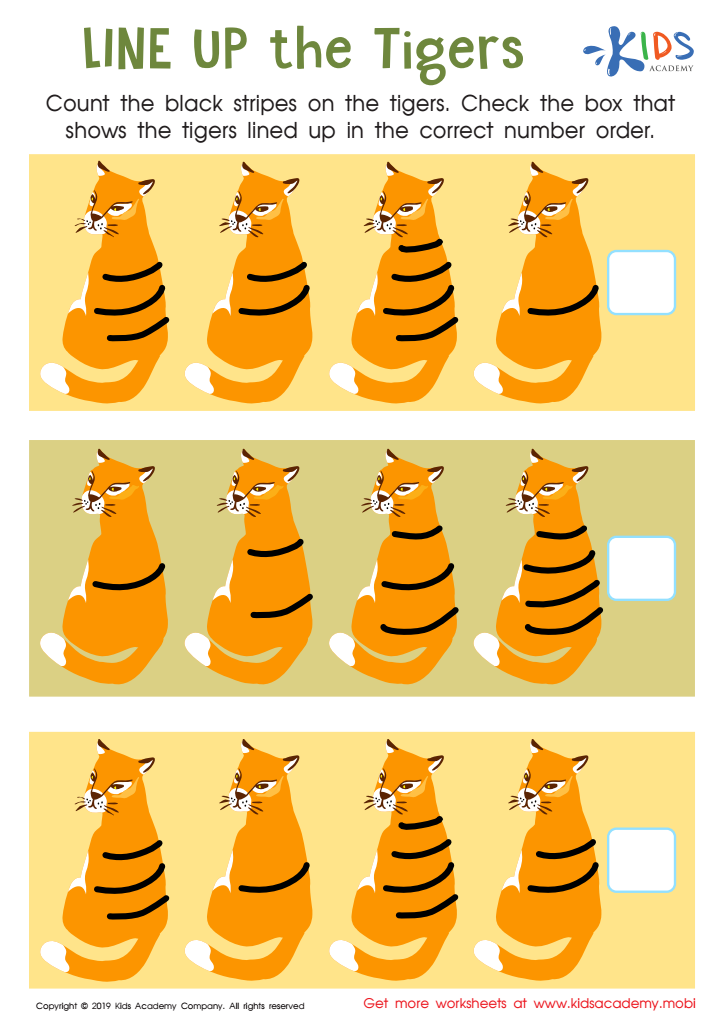

Line up the Tigers Worksheet
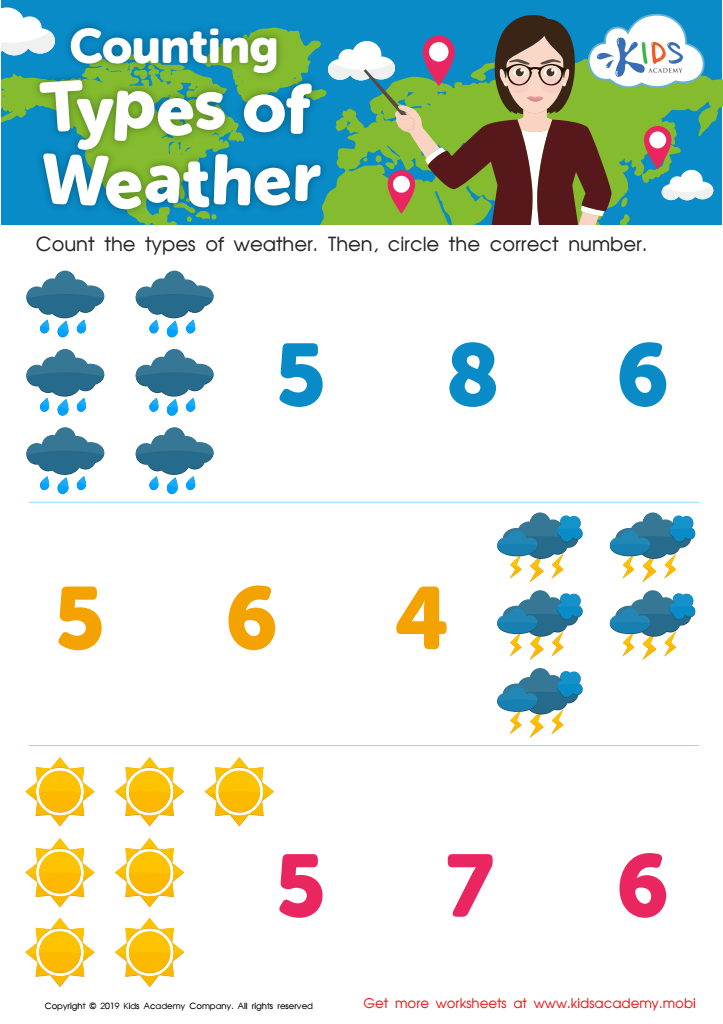

Counting Types of Weather Worksheet
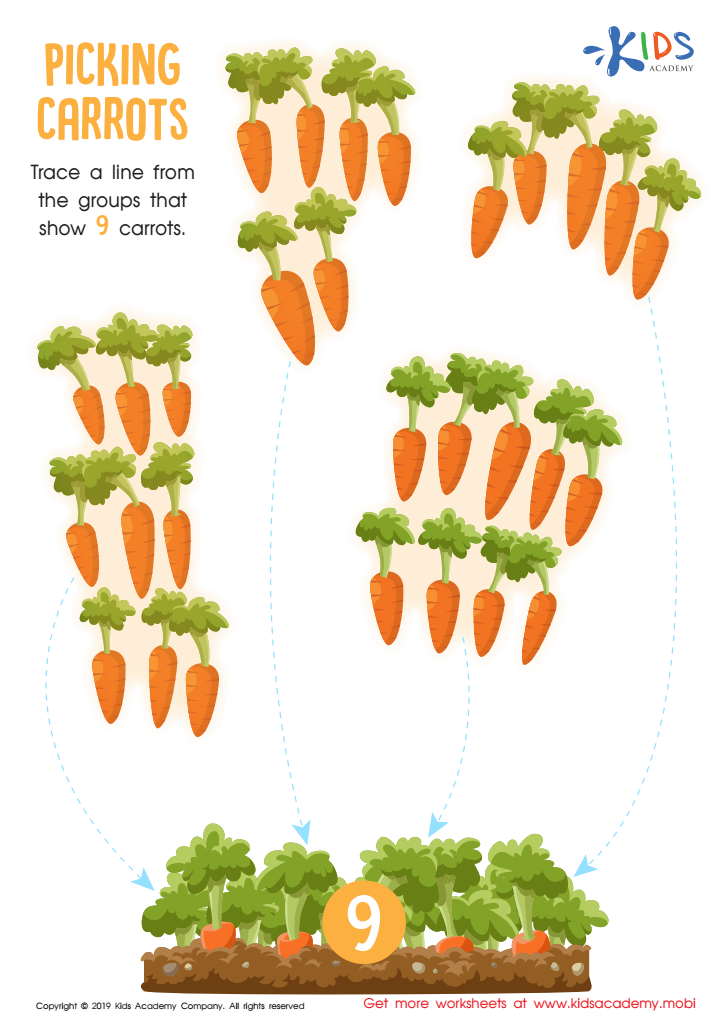

Picking Carrots Worksheet
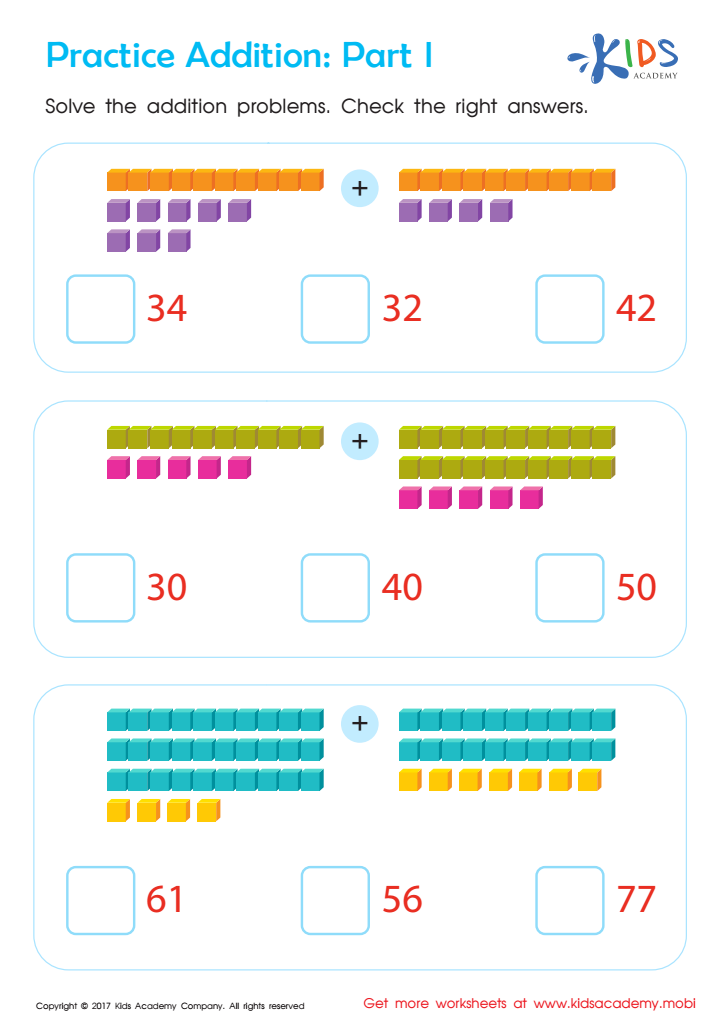

Practice Addition: Part 1 Worksheet
Basic arithmetic is the foundation of all future math learning, making it crucial for young children aged 4-7. At this age, kids are developing cognitive skills that will support their academic growth. Fostering an understanding of basic arithmetic—such as addition, subtraction, and simple multiplication and division—helps establish critical thinking and problem-solving skills early on.
For parents and teachers, nurturing a child's math skills lays a groundwork for confidence and a positive attitude towards more complex mathematical concepts. Math is pervasive in everyday life, from counting money to measuring ingredients in a recipe, thus early skills empower children for real-world situations. This early competency also sets the stage for better performance in school as math-related subjects become more challenging.
Moreover, tackling basic arithmetic from an early age promotes neurological development. Studies have shown that engaging in math activities stimulates brain areas responsible for memory and strategy. The key advantage here isn't just academic excellence but fostering a lifelong appreciation for learning and discovery.
Parents and teachers, by prioritizing basic arithmetic, ensure children not only meet educational standards but also develop essential life skills, cognitive flexibility, and confidence that will benefit their educational journey and beyond.

 Assign to My Students
Assign to My Students
















